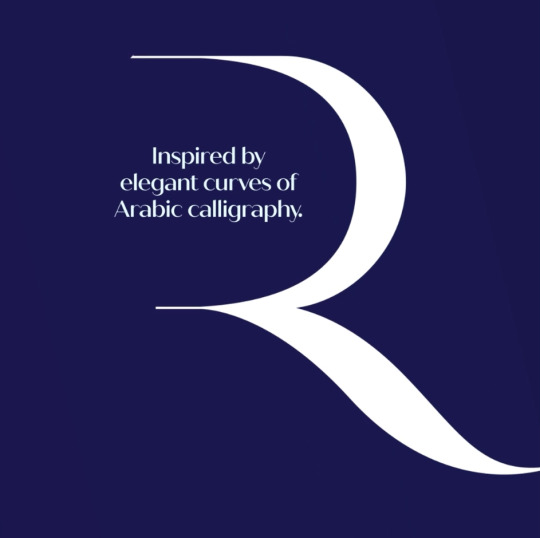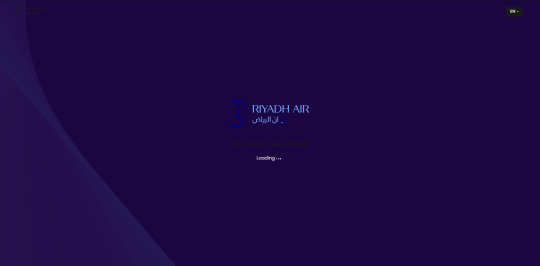#that comes with a million caveats but i do still mean that
Explore tagged Tumblr posts
Text
idk how to put this nicely but im sick of seeing pretty trans people in media and i wish culturally we were at a point where there was room for regular/"ugly" looking people. the way cishet white guys get to be successful performers even though theyre not conventionally attractive bc theyre funny or charismatic
i firmly believe that everyone is beautiful bc beauty is subjective and emotional and smth we create through perception and interpretation. but there are conventions of beauty that western culture elevates
the trans people that are allowed mainstream success are the ones who pass for cis. bc in a lot of ways the idea of what "cis"/"cis passing" looks like = gender conforming = "attractive". that's why when cis people are like "omg, i'd never know you were trans" or "you're a prettier woman than me!" the underlying assumption there is that trans = ugly, and trans people are inherently unattractive. BUT! if they try hard enough (spend enough money on surgery and hormones and makeup and clothes. and also just naturally look fem/masc enough because of course the real trans people are the ones who pretty much passed before doing any sort of medical transitioning anyway :) and it was soooo obvious all along who their "true self" was!) then those lucky few get the honorary title of cis* in everything but the actual meaning of the word. the "you tried" star that makes cis people feel sooooo good to pass out.
i know its a much broader issue of like any social "minority" having to meet the standards of the "majority" to get any sort of acceptance. but i'm pressed abt this specifically rn
#just felt strongly abt this out of nowhere and felt like rambling abt it#ok wait before the finger of the monkeys paw curls down/ice cream truck falls on spongebob:#im happy to see trans people in the media at all. im happy there is a form of trans person that is broadly acceptable.#that comes with a million caveats but i do still mean that
5 notes
·
View notes
Text
I think New Vegas and the original fallout team in general have some major and consistent issues with their writing that a lot of people just like skip over. And me pointing that out isn’t me saying the games are bad. Media is a product of the time it’s made in. They write like typical head in the sand don’t know when they’re being offensive 90s era tv writers a lot of the time.
But also this is one of those media franchises where if you criticize certain things about it even a little bit you need to put in five million caveats so the fanboys don’t come crawling out of your walls.
You can see almost everyone online who criticizes Fallout, Fallout 2, and Fallout New Vegas attempting to put up a shield preemptively because the people who prefer those games ooohhhhh baby baby you can feel their fingers reaching for the comment section before you’ve finished your sentence.
But I can’t shut up about the things I notice about the media I consume. I’m a queer writer with an English degree. I’ve been trained to notice things and I think there’s a lot of things out there worth discussing and critiquing even when it comes to media that most people agree is generally good.
Your favorite work of art is not immune to perpetuating biases whether on purpose or by accident. New Vegas for example has a serious noble savage problem. All of these games have issues when it comes to their “low intelligence” dialogue options. Yes they can be funny but the biases within them are also worth looking at. Why do you find them to be funny? Is this game actually truly doing a good job of humanizing the enemy? Is this game accidentally advocating for eugenics? Is this game advocating for torture? What assumptions are the writers making here?
Pretty much everything out there that you’ll ever read, watch, or play has some form of issue with it. Likely my own work has issues in it that I don’t see.
Even if something is good, even if something is timeless, revolutionary, something you’re proud of, in love with, it’s still worth looking at closely. Sometimes you don’t realize when you’re being manipulated. Sometimes you don’t realize what assumptions you just accept as fact.
Critique doesn’t mean condemnation. It’s a part of a healthy media diet. It’s fine to just enjoy things but someone digging deep into the problems with the things you enjoy doesn’t mean that you need to defend those problems or that you’re being attacked. You have every right to turn off your brain when consuming art. But just because that’s how you choose to go about it doesn’t mean it’s not that deep.
75 notes
·
View notes
Text
get ready for my thoughts on yaoi UBI
So I’ve kvetched about UBI in the tags for long enough someone finally asked me what I was going on about so here we go!
I will start with some caveats:
I am British, and so I can only speak about the British specifics.
I have for the past twelve years worked as a professional health economist, and health economics is based on social welfare theory (specifically growing out of Arrow’s work in the 1960s and Sen’s work in the 80s/90s). I literally could talk forever about this, but I won’t. If you want to know more, read the pretty good wikipedia article on welfare economics.
But fundamental to welfare economics is two things: if we make a great big change, do the benefits outweigh the costs? And does the change make a fundamental change for good? (aka cost-benefit analysis and pareto efficiency).
The other thing you need to know about me is that I don’t like activists very much, because they never have to show their working, and my entire professional life is showing my working, and critiquing other people’s working. We all have ideas mate, show me the plan! I love a plan! and this isn't coming from anything but personal experience; I have been to talks by UBI activists before, including ones by economists, but I have never had the case made to me that UBI would be either cost-beneficial OR approach pareto efficient. In fact, it usually reminds me of arguments that are based on some other imaginary world, and then I get so annoyed I want to scream.
In the early 2010s when I was first starting working as an economist, I was asked to build a model to see whether switching a disability benefit from government administered to individual administration would be cost-effective. Essentially, if you were newly in a wheelchair and you needed a ramp building up to your house, would it be better for the government to organise a contractor, or for you to be given a cash transfer and organise it yourself? The answer was that it wasn’t, but anyone who has ever had to hire a builder could have told you that, and the government didn’t have to pay my firm £30,000 to make that decision. But that is what UBI essentially is; a cash transfer where you get cash and the government gets to enjoy less responsibility.
There are 37.5 million people of working age in England. (Nearly) every single working person gets what's called a tax free allowance, where the government doesn’t claim income tax on the first £12,570. (Once you make over £120k, your allowance starts to decrease, and you lose it entirely at I think £150k)
Let’s assume that instead of just not claiming tax on this amount, the government switched to making that £12,570 your UBI. That is £471,375,000,000 just for England - just under half a trillion pounds. In cash, or nearest as in our modern economy. And not one off - Every year.
Okay, let's say that the country does have a spare half a trillion a year (in cash) lying around. What is the benefit to switching from tax free allowance to UBI? Well, let's assume that no one stops working, so there would be the tax receipts from the 20% income tax on the £12,570, and that’s just a shade under £100 million. Not bad.
But if you’ve seen a UBI post, you will know that people like the idea because they will be able to work less. Which probably means that UBI will need to be paid for in some other way. Perhaps by cutting existing benefits. The universal credit cost is around £100 billion. So we’re still £300 billion short, and honestly, you wouldn’t cut all of universal credit anyway, probably only the unemployment benefits, but I’m not digging into the maths on that tonight.
But, look, I am sympathetic. I am a welfarist. I genuinely believe that the economy is not just money, that welfare is happiness, it is utility, it is all the stuff that makes life worth living, and it is the responsibility of the government to maximise the welfare/happiness/utility/quality of life of the country through efficient use of taxation and other sources of money. So people give the government money and it spends it on goods and services and then people get utility, and then they spend their own money to get more utility, and ultimately we can gain intangible things that are incredibly valuable.
But the problem is that cash is cash, cold and hard and very real. I don’t know how unlimited spare time translates into half a trillion real pound coins. I wouldn’t know how to build a model that complex and uncertain, especially as this all assumes that you can live on 12k a year, and that whatever replaces progressive taxation is equally progressive. I haven’t even touched on how having a convoluted welfare state insures it somewhat against being entirely destroyed after a change in political opinions, aka what I call the daily mail test. You think the narrative about people on welfare is bad now? But also, how would you deal with people who didn’t manage their UBI money well? What happens if there is a personal crisis?
The more I look at it, the more the existing system is actually remarkably good value for money. Individualism is expensive. Collective decision making and spending is just cheaper.
Ultimately I don’t see the additional benefit of UBI, requiring a pie in the sky change, when it is far, far, far more cost effective to strengthen the existing regime across the board; taxation law, social safety net, childcare, working laws, education and health - all systems that are already in place, and have a thousand times higher likelihood to be pareto optimal and cost effective than trying to find half a trillion pounds of cash round the back of the sofa, while torching 150 years of progress so middle class people can write their book without having to have a job. If I was conspiracy minded I would say that UBI feels like a psy-op, trying to shut down old fashioned progress in favour of ripping it all out and starting again.
Ultimately, that is my real annoyance. It is far, far, far cheaper for the government to provide you with your new ramp for your house, and that is done through politics, but not fun moonshot politics, the hard shit that isn’t sexy.
#UBI#universal basic income#me being an economist on main again#the third time in twelve years#which is a pretty good record#study economics and be involved in politics#engage with the actual politics you have!#you'd be surprised how many progressive things get passed by conservative governments#and that is because you should never give up hope#I hope I don't get cancelled for my perfectly anodyne takes where I also show my working#and now back to your regularly scheduled blorbo fixating
32 notes
·
View notes
Note
Gotta preface it with ‘I’m not from the US, so obviously don’t understand lots about how election results affect everyday life of people living there’. Also, if I suddenly, still being myself, became a US citizen with a right to vote, I can’t imagine voting for Trump. Saying all that, I don’t think labelling half of the country, tens of millions of people, genuinely evil is very productive or even mentally honest.
I am from the part of the world, which suffered from both republican and democrat US administrations, and lately most of the geopolitical games resulting in tons of blood, have been played, obviously, by democrats. I have to say that I find their utter hypocrisy deeply disgusting. At least your republicans, how I see it, don’t even mask being monsters, they say it like it is. When two negotiating sides state their goals outright, it is possible to come to an agreement at least marginally better than when one side is always being two(3,4,5)-faced, making a point to wrap their actual goals (if they even know them) in pretty words about democracy while double-crossing their negotiation partner even before the ink has dried.
I know that you’re from Iran and are aware of how deeply destructive US foreign policies can be, increasingly so since the start of this century. With one caveat that Trump seems to be especially hostile to Iran, and a democrat would’ve been marginally better when it comes to the US policy regarding Iran. It’s not the same for all parts of the world though, so we might not all be unbiased observers here.
I know that foreign policy doesn’t decide US elections, I only wrote this longwinded nonsense to say that maybe there are solid reasons for half of the US to prefer Trump and reject the democrats, like for the rest of the world there are reasons for either. Economic, political, whatever. Maybe liberals should look into these reasons before dismissing millions of people as genuinely evil, like Hillary did in her time. Idk about you, but when she called half of the country ‘deplorables’ or whatever, no one I know and no one I read (not from US) felt sympathetic. It just sounded incredibly entitled and delusional, and plain dumb. And it looks like since Hillary democrats haven’t learned or even attempted to learn anything, it’s still ‘half of our nation is broken and evil and we can’t do anything about it’. But it’s not how people work, in my opinion. Yes, they might not care about minorities first, they might care about themselves first, but doesn’t it mean that politicians should identify their problems and offer solutions? Isn’t it how it works? Dehumanazing Trump supporters will only radicalize them more, isn’t it what in fact happened, and how it always works with people in general?
Idk about life inside the US, like I said, but how I see it, the only ones to blame here are democrats and liberals in general. If people in the world, and I’m sure inside the US, will see that they finally start addressing the problems instead of hiding behind empty rhetoric, if the level of hypocrisy and delusional entitlement decreases at least to some degree, the support for right-wing populists will also decrease, I’m sure of it. Because most people are not ‘genuinely evil’, but they become embittered and cruel when their concerns are continuously dismissed, things start to fester resulting in ugly political outcomes. I mean, I know you know all this, sorry for being so boring and longwinded. It’s just that I usually like your takes (I came for MASH and stayed for the neighbors as well), including political ones, but here I got a bit of a whiplash, sorry.
I appreciate this thoughtful note. You don’t have to like my takes for us to be on friendly terms. And to be clear I do forever and always blame democrats and liberals for not energizing the people who agree with them.
But as you say you don’t live here and so there’s no way for me to convey to you without asking you to spend months reading right wing political accounts here and talking to people here that a sizable number of the people who support this man are genuinely bad people and want me and people like me out of this country.
This comes from hundreds of personal encounters over the past 8 years and spending the past three months reading dozens and dozens of pieces of reporting that are like “I went to talk to voters in a small town, here’s what they had to say.” And the things you hear are: purge this country of immigrants, make America a dominating force in the world again, get us back to traditional values where women are popping out babies…oh yeah and also the economy would be better under him.
Like idk what you want me to call sexist, homophobic, white supremacists but I think they are evil. And I think it used to be that the Republican Party was more polite about all of these beliefs so I could understand people being disaffected and voting for them for reasons other than hating other humans but now we’re just saying the quiet part out loud and there’s no plausible deniability
42 notes
·
View notes
Text
No. 36 - Riyadh Air
No, they are not changing their name to Saudi Arabian Airways, but there is a new development on the Saudi Arabian flag carrier front.

That's right, Saudia is dead, sayonara you w-
No. That isn't true, that was a joke. But what isn't a joke is that Riyadh Air is a planned second flag carrier for Saudi Arabia.

That's mostly a joke. Other countries have multiple flag carriers, though that comes with a couple caveats. Usually when this happens one is full-service and international while the other is domestic and/or low cost. The UAE has two flag carriers, but one is Dubai's and the other is Abu Dhabi's, which feels like an important distinction.
Saudi Arabia, on the other hand, just has decided they want to operate a second airline instead of doing the normal thing and putting all their resources into one really good airline. I don't understand it. The plan is to keep Saudia based in Jeddah while Riyadh Air is based in Riyadh...again, plenty of airlines have multiple hubs, so I don't see the point. They claim to be the first "digital-native airline", which is shaped like words yet means nothing (also, take that up with David Neeleman and Breeze). They've nabbed Etihad's old CEO and bought a bunch of 787s, and the stated goal is to become the largest carrier in the Gulf region at an unprecedented blistering pace in order to increase tourism. Given Emirates's numbers...well, it's probably still more likely to happen than a startup airline operating exclusively A380s managing to turn a profit, but that's not saying much.
Anyway, they've got a livery! Apparently this is the first of two, so expect a follow-up post when the second one drops, but for now there's plenty to talk about as is.
Unlike many - nay, most - of the subjects I cover, Riyadh Air has made me do absolutely zero research. You do get modern liveries like jetBlue and Lufthansa with little style guides to weakly attempt to back up their relatively mundane graphic design choices and things like condor and Icelandair's lovely little webpages, but Riyadh Air has done them all at least one if not several better by not only explaining in detail where they got their inspiration but also giving me a high-res 3D model of their airplane that I can rotate and zoom in and out on.
Take care; my computer is fairly underpowered and I do have an absurd number of tabs open most of the time, but this did crash my browser multiple times. Even just opening the main page of their website makes my CPU sound like it's spooling up for takeoff.
Okay. First I want to discuss the logo. They've got a video up on their thought process. I had transcribed it, but it looks better in motion, and thankfully they've stopped making it autoplay (presumably because, as I mentioned, this website absolutely guzzles processor as is) and in the process made it possible for me to simply left-click it off their website and into this post. Don't worry about it killing your browser. It's a normal video in a normal tumblr post without a 100 million dollar website chugging along in the background.



(I've taken some screenshots in case anyone does have trouble with the video.)
Now this is how you design a logo. The airplane window thing feels, in retrospect, so obvious I can't believe nobody had done it yet. I think it pairs gorgeously with the R, and I love that they chose to take inspiration from Arabic calligraphy, which is not only a massive point of pride for cultures which utilize the script but also just generally gorgeous. (It looks a bit like a stretched backwards hamza to me.) The shape of the bird's wing is the part I have the most trouble actually connecting to what I'm seeing, but sure, I'll give it to them. What the heck. This logo is nice.
I mentioned when discussing China Airlines that very few airlines use lavender as a primary color. Well, here's one that does! They actually discuss this on their website as well:
Inspired by the lavender blossoms that carpet Saudi Arabia, we've chosen this color because it symbolizes Saudi generosity and its authentic hospitality.
And this is, again, pretty fantastic. This is a thoughtful choice which isn't lazy or arbitrary. It has the potential to really pack a visual punch, and it does the thing I love when flag carriers do - references a feature of its home nation.

An upside to the fact that the livery page takes eons for my computer to chew on is that I get shown this lovely loading screen, which demonstrates the fantastic combination of blues and purples which make up the full scheme of this airline's colors. I love the combination of these colors. Light saturated colors are rare enough, but to see extremely dark blues and purples together like this is a rare delight. It definitely has the potential to get eyestrainy, but if done well it could look absolutely breathtaking.
But will it be done well? After all, a good idea isn't always well-implemented - see condor - and China Airlines's livery fails for me because it's barely got any lavender! So does Riyadh Air fall into the same pit? Let's check the browser-destroying 3D model they've lovingly provided us.
I love that 3D model, by the way. Instead of looking for a bunch of pictures of airplanes that happen to be in the correct lighting and at the right angle to demonstrate the exact thing I'm attempting to discuss I can just...zoom in while putting the plane at the specific angle I want. Normally I actually try not to rely too heavily on things like style guides because a piece of flat-colored concept art isn't actually going to communicate how a plane looks in motion and with light on it, but this is a really really robust model. Sure, it's not quite as maneuverable as I'd like it to be, it's still not a perfect representation of real life, but it's really well made. It even sways side to side a bit and if you zoom in close enough you can see they bothered to model the external sensors and the engines are even turning! Don't worry about the fact that if you zoom in even further you can tell the engines are just a fan suspended floating in a cowling. They even added ambient engine sounds. This model is so cool it legitimately took me several minutes of turning it around and muttering "wow..." under my breath before I realized the environment it was sitting in was just some very stretched and crunchy jpgs.

Mmm, those reflections.
To be honest, I also just enjoyed playing with this thing. It's almost like having a real model plane, but doesn't cost more money than I have! But enough of that.

So they definitely didn't chicken out when it came to the lavender. This plane is as purple as a Breeze Airways plane is blue (it is very purple). It's not just a purple tube, though. Even from a distance you can see that there's added detail here.
I love the wordmark, first off. They've really committed to the billboard look with this gigantic text in both English and Arabic. I love it. With such an overwhelming main body color it feels prudent to make sure the name is as visible as possible so it doesn't get lost in the shuffle.

And with this gigantic, recognizable logo plastered on the bottom you'd be able to identify it just as well from below (and this is zoomed out as far as the website let me!). In fact, the depth of the design really shines best from below. That's not necessarily a good thing, because your plane does have to be parked sometimes, but it's not a dealbreaker either. I just need to say that this is probably my favorite design for an engine nacelle, ever. It's gorgeous, and you can see in the first picture how well it flows into the main design. They don't go together quite as well from the bottom, and from below the plane does look a bit rear-heavy and the wordmark peering in is a bit awkward, but none of those ruin it. I would be stunned if I saw this fly overhead.
The website provides a few details about the design if you zoom in and click little black dots. It took me ages to realize this. It's neither intuitive nor accessible and I truly despise it, so I've taken the liberty of transcribing the bits that matter.

You can turn this plane in any which way you'd like, zoom in and out, and the details on the bottom never stop being beautiful and coherent. It truly does remind me of calligraphy. As they describe it:
Rooted in our Heritage The controlled, smooth linear profiles make up our signature "Canopy Twist". A perfect balance of our rich local culture and our modern global outlook, connecting the city of Riyadh to the world.
I love the name 'Canopy Twist', to be honest. And I love the design, too. My one criticism of it is the colors. They already have an established secondary shade of purple. That they used the text color for the highlights makes sense, but why couldn't they have used their lavender instead of a third shade of purple? In the quantity used for the underside it feels disconnected from the rest of the livery and they could have fixed that very easily by just...using their already existing secondary shade of purple? I think it would make for a very nice bridge to the tail as well, and it just feels like a colossal missed opportunity.

You may have noticed that the bulk of the fuselage body is a color a bit darker than what might conventionally be considered 'lavender'. This, too, is noted.
Indigo Livery Inspired by the ever-changing colors that paint the sky from dusk till dawn. A symbol of tranquility, harmony and integrity.
(This color is obviously purple, not indigo, but I will not belabor that point.)
I love the description, the idea of the transition between dusk and dawn. Much like the window as a basis for a logo, this makes me go "why in the world has nobody thought of that before? That's brilliant!"

It makes me think a bit more could have been done in the details. Maybe the canopy twist could be a gradient, like the gradient of the sky while the sun is rising? Just a thought.

And ultimately it's the canopy twist that is my only real sticking point with this livery. It is beautiful and unique and well-designed and it is simply a color that sticks out like a sore thumb. It's the only warm thing creeping into a design otherwise full of beautiful cool tones, it has gorgeous flow within itself but breaks up the feeling of consistency through the airframe as a whole, and I just...I really wish it were lavender.

If that's my main issue you can do a lot worse. And overall I do like the Riyadh Air livery. If that one detail was changed, this would easily be an A. This review would be all but uncritical. Except for the fact that it could use a bit of canopy twist up top, too (maybe just a tiny bit on the top of the nose, flowing in the same direction) in order to make the plane feel less rear-heavy (though it already beats out the vast majority of liveries in that sense), the issue with the color is my only big criticism. But it's the main detail of the design, isn't it?
It's wild. So much of the time my reviews are "good details, bad when you step back". But this is the opposite. Fantastic, but there's that one detail that sticks with you. And the details by and large are far from bad too. I mentioned the nacelles, and I think it very elegantly transitions the tail into the body. It would be more elegant if the design on the body was the same lavender, though!

A few more nitpicks: the centering of the logo on the tailfin is a little strange, the tail would look better if it had a bit of a gradient to make it less matte-seeming, and the combined effect of those is very luxury-hotel-towel-monogram. Okay. I'm done complaining.

So it falls short of being one of the best I've ever reviewed, but I still really, really like it. The calligraphy inspiration creates these elegant sweeping lines that are perfectly at home on the 787. The deep purple looks luxurious despite the fact that Riyadh Air doesn't plan to offer first class. It's eyecatching. It's stylish.
And, now that I've covered all this, let's look at the colors in person! That's right, they've already had a plane delivered in full Riyadh Air colors.

The deep purple with the lighter canopy twist, combined with the tiny white dots of the various probes and such, make this plane look like an animal camouflaging itself against the night sky in a place untouched by light pollution. The light lavender contrasts sharply in this particular image, sharply enough that it feels like a slice cut out of the plane.

This continues to be an issue from other angles and in other lightings, but the cool-toned light makes this purple look like true indigo and the blueish cast improves the look, giving an almost fluorescent appearance to the transition between the twist and the tail. The way the light reflects off the dark paint makes it look rippling and shifting and alive in a way it never could off white.


In shadow, the plane looks as dark as a city sky. In light, the vibrant purple of a fresh eggplant. This paint job adapts wonderfully to its environment. Much like Vietnam Airlines's, each light brings out a unique beauty.

And sometimes, the tail, detached though it may look, does so in the way a shining arm of a spiral galaxy neatly transitions into the black expanse around it.

Riyadh Air's planes range from ultraviolet to supervoid, but they are never lost in their environment. The principles behind the design remain consistent, and beautiful, and alone in a sky full of planes which refuse to embrace the dark skies they fly in on red-eye journeys.

Ultimately, I think Riyadh Air's livery feels a bit overdesigned. They added one color too many, and a few decisions feel like they don't belong together in the same picture. Just think about the amount of colors here, the balance of major features, and think about Vietnam Airlines, and you'll see what I mean. I'm not a fan of minimalism, but sometimes the only way to keep a story straight is to minimize loose ends. A secret becomes exponentially more likely to be exposed with each new person who learns it.
But before I looked closer, before I zoomed in and out on a little 3D model while my computer screamed, I saw this livery for the first time and my jaw hit the floor. And the average person isn't going to think about this the way I do. Ultimately, my critical eye is usually something I defer to, but I can't argue with the fact that this livery is going to be to someone else what China Airlines is to me. And, like China Airlines, when they come back and look closer at it they'll notice it wasn't as perfect as they thought, but...we've come so far, if this is someone's China Airlines. And as much as I nitpick at details the package counts, too. If you asked me why China Airlines got a C- instead of a D+, my honest reason would be...it struck me enough that I singled it out to begin with, even though that started to fall apart when I looked closer.

Why am I giving Riyadh Air an A- instead of a B+? Because this plane will stun people 5,000 feet below it, and they'll think to themselves that it's the prettiest plane they've ever seen.
#tarmac fashion week#era: 2020s#grade: a-#region: middle east and north africa#region: saudi arabia#riyadh air#flag carriers#at least ostensibly flag carriers.
35 notes
·
View notes
Text
The Legend of Zelda: Tears of the Kingdom
10/10
There’s a million things I can say about this game, and they’re all good.
But if you need a single reason why this game rocks, it’s because it lets the player have as much fun as they can.
TotK, like BotW before it, gives the player a massive array of tools and ways to interact with the game. You have weapons and armor, sure, but you also have an array of powers that let you move and change the game world in different cool ways. But the obvious stand out here is the Zonai Devices, a ton of physics devices that the game lets you craft into weapons, vehicles, utility devices, and much more. If you’ve seen anything about the game, you’ve definitely seen some of the War Crime Machines people have made, and those are great, but you can also make efficient hovercraft, boxes that let you jump higher, and much more. Plus, one of your powers lets you replicate devices you’ve made in the past, so you can always have your favorites close at hand. And if you don’t have the exact parts, the power replicates them using a rather common resource.
The world you interact with remains absolutely fantastic. A massive open world featuring all sorts of enemies, locations, treasures, and everything else you’d want to find in a RPG. Like its predecessor, like Skyrim, like Elden Ring, you always want to be exploring so you can find that next new thing. Whether it’s a new armor piece, a stronger weapon, or just more crafting materials, there’s always something to find and always something worth discovering.
There’s also a story here, far more visible and present in the game than that of BotW. No spoilers here, but there’s a lot of excellent setups and payoffs, and everything that happens in the game is contextualized through various cutscenes and dialogue options. While some of it might get repetitive, it’s still solid, and the characters don’t overstay their welcomes.
Two minor nitpicks have to be brought up. The weapon durability and rain from BotW reappear, both doing their best to annoy the hell out of you. While rain remains the most antagonistic feature to your exploration, TotK does a lot to make weapon durability mean something by including a very cool crafting system, where you combine materials you’ve found with your weapons to make them stronger. It encourages seeking out different types of enemies to obtain different classes of weapon, and while there are a few clear superior options, there’s no real mistakes in how you can fuse your weapons either. Was it worth having degrading weapons? Probably not, but it’s defensible in ways that the system in BotW wasn’t.
One last major gripe is that Nintendo is a garbage company when it comes to everything surrounding copyright, IP law, treatment of workers, basically everything that plagues capitalism, so I can’t recommend buying the game without caveats. That said, if you’re a fan of a certain Japanese lemon (wink wink) the game runs perfectly well and costs much, much less.
I put a ridiculous amount of time into this game, and found that none of it was wasted. I would highly recommend it to pretty much anyone.
Now to be disappointed by Starfield.
8 notes
·
View notes
Text
In the 1970s and 80s there was a chain of electronics stores in the New York media market that became quite famous for its over-the-top commercials. They hadn't invented that style of ad (which, as far as I can tell, rose and fell with the independent or small chain retail market), consisting of a very excited "insane" guy with a catchphrase about prices (His Prices Are INSAAAAANE!), but they flooded the Tri-State area airwaves with it.
I'm not really talking about this company because of their advertising, except in the sense that I am familiar with this company because my father told me the story of the ads once, while mentioning that he got some suspiciously cheap but good electronics there. You see, Crazy Eddie, named after primary ringleader Eddie Antar, was also a criminal enterprise and a fraud. According to one of the participants, Sam E. "Sammy" Antar, whose detailed and presumably highly misleading account of the case is available on his amazingly-named website White Collar Fraud, it had always been engaging in fraudulent accounting.
From its humble beginnings as a private company, profits were skimmed and employees were paid under the table, allowing the Antar family to, ah, manage their tax obligations. My understanding is that neither of these practices is or was particularly uncommon in the world of brick-and-mortar retail.
Now, as Crazy Eddie expanded, it became less and less reasonable to engage in petty fraud at that scale. What they had to do next was stop committing tax fraud. Not only would that allow them to avoid getting caught doing tax fraud, by progressively skimming less of the profit they would be able to appear to achieve an impressive rate of growth. This was all in preparation for the smart bit of the scheme, going public.
This is how it works. Stocks trade speculatively at a significant multiple of earnings. This means that if you control and own most of a company, if you can dump your own money into your company and then sell a significant amount of your stock, you can still easily come out well ahead. Soon, the Antars were painstakingly laundering money they had sucked out of Crazy Eddie while it was privately held back into the company past the not particularly vigilant auditors in order to look good to the financial markets.
Eventually the scheme started falling apart socially and financially, and the company suffered a hostile takeover from a competitor who subsequently found that there was $40 million less inventory than advertised. Caveat Emptor, I guess. Eddie Antar tried to flee to Israel but was extradited, upon later getting out of prison he tried to start another electronics retailer called Crazy Eddie, which surprisingly didn't work. Sammy Antar turned state's evidence and is now a fed-lite.
Why am I saying all this, why am I pointing out this particular case? Well, obviously it's because I think there are a lot of modern-day Antars running around making a lot of money, and presumably a lot of their CFOs are also going to flip and reinvent themselves as forensic auditors once they get caught. I assume most startups are somewhat more legal than anything Crazy Eddie did, but many of the market principles remain the same. In fact, corporate lawyers have developed more and more ways to do the same things the Antars did legitimately.
It is ironic that stealing from their own company was worthwhile for the Antars so long as the company was a serious business for them, albeit one that they were operating in a criminal manner, while pumping money into their company was only the correct thing to do once they were divesting themselves of ownership. Obviously this is just how tax evasion and pump and dumps work, but I find it contrasts interestingly with the capitalist dogma that ownership makes for better stewards of the property, still used as the primary political argument for privatization even though capitalist firms are also run managerially.
Ultimately, my takeaway is that the Antars were basically your regular shady retail guys, until they spotted an opportunity to get in on the ground floor of Shareholder Value Maximization. My other takeaway is if you get something cheap because someone is fucking the shareholders, mind your own business probably.
6 notes
·
View notes
Text
I had some big ol' hyperfixation this weekend that actually got me to write some stuff (and lose some sleep, because apparently the best time to have ideas is in the middle of the night).
This kinda midnight revelation-style of creativity has happened before, when I ended up writing a whole fan rewrite of the Legend of Korra at 3am on my phone. It's kinda wild and remarkably coherent, but I'll leave that for some other time.
This weekend's hyperfixation that I'm going to focus on came out of two places:
Some worldbuilding I'd done on a stream back in August 2022 using some of the campaign/worldbuilding guidelines from Beam Saber by Austin Ramsey (it's a wonderful game, highly recommend it). I'd created two settings in it, one of which was a manufactured war between megacorporations taglined as "Imagine if the Tour de France/Formula 1 was mech battles". The other, which is actually important for this, takes place in an unnamed region on an unnamed planet with an overall cold climate, currently split between three factions who are all trying to get their hands on some old (and sealed) super-technology. The region has the incredibly unlucky distinction of being the place with heaviest indication of said super-tech, so these three offworld factions rushed in to try finding the tech first, sovereignty and the concerns of the millions of people living there be damned.
I've been trying to get myself back into drawing lately, and I had the idea for a scene that turned into a short (at this point just sketched out) comic. It goes something like this: Pilot: "Again, why are we doing this?" Handler: "To keep us going another day, Mai." Pilot, watching a battle unfold in front of them from their obscured position: "...right."
My brain turned out to be very fond of this idea, to the point where I started thinking of scenes and characters for a whole comic. I ended up with a page of notes on my phone and another page on a doc on my computer. I'm fairly pleased with that, after being so creatively burnt out this year.
Here are some highlights from those notes:
I've come up with eight characters, but only two of them are named: Mai-Lin, aka Mai, a local mech pilot and our protagonist, and Kestrel, a Vraskan mech pilot who might be a lab experiment (the Vraskan State is one of the offworld factions, a military dictatorship ala Starship Troopers).
That comic I was sketching out would actually function at the beginning of the comic, with Mai and her squad third-partying a fight between the Vraskans and the UFL (different faction, a stratified democracy).
The cold climate means lots of cold weather clothing, including greatcoats for the Vraskans and a whole variety for the UFL. Not too decided on what the local fashion is yet.
One of the main throughlines would be Mai and Kestrel continuing to encounter each other, with Mai trying to break Kestrel's programming. They kiss at some point. Is it a good idea? Who knows!
I wrote not one, but two separate flashbacks for Kestrel. I'm really starting to understand the writer thing of "I love this character! I'm going to have absolutely terrible things happen to them."
Outlines of a few other scenes, with the highlight being just before a diplomatic summit. Kestrel's CO, a violent, domineering sort in a violent, domineering society, is accompanying a Vraskan diplomat who's also a military officer. The CO makes a comment about how much of a waste of time this whole summit is, to which the diplomat shows their full displeasure, culminating with “Your rank may be higher, but I outrank you. Are we understood?”
I love all of this, with one caveat - I don't know if I can deliver on my own promise. I can see in my mind's eye what all this stuff should look like, but I'm not sure if I could put pencil to paper and actually make it happen. Still, it's nice to gush about it, especially after all this time of feeling creatively empty.
2 notes
·
View notes
Text
Meat And Potatoes
Trying to meet the needs and wants of diners is no small task. As in all things, those needs and wants change over time. Stir in some inflation, and you find changing habits simply based on money. And then factor in that, as you get older, your likelihood of becoming a grumpy old man or woman becomes alarmingly high. You don’t even realize it has happened, until someone points it out to you. Change can be unsettling.
I have made it my mission in life—or what remains of it—not to become that grumpy old man. Wish me luck. Lots of it.
With Baby Boomers, the most storied of generational cohorts in the US, and now all 60 years of age or older, it means there are a lot of potentially grumpy people among us. That amounts to some 76.4 million of the 78 million that were born between 1946 and 1964. We also hold 51.8% of all wealth in the country, and if our kids and grandkids are nice, we’ll leave it to them.
On paper, Boomers are still a very lucrative market segment, but generally speaking, as people age, they spend a lot less, except perhaps on travel. And that is only to a point, because if you live long enough, you will eventually reach the age after which travel becomes challenging.
But dining out—you were waiting for me to circle back, weren’t you?—is something that older people still do, albeit with some caveats. Older folks tend to eat dinner earlier, shy away from driving after dark, and go in for comfort foods. They are easier on aging digestive tracts, and, perhaps most importantly, have a nostalgic value, harking back to a very different time free from all of the uncomfortable changes our seniors have had to deal with. Change, as we have discussed, can be hard, and especially when you are old.
We are thus left with chains that target Boomers with a lot of the things they find most palatable, from Denny’s to Applebees, IHOP, and Cracker Barrel. Each has had to scramble of late to tread water, thanks to inflation hitting their target demo pretty hard.

And then there’s Perkins Restaurant and Bakery, the chain with about 300 restaurants that unabashedly targets Boomers, and is now undergoing a significant makeover to try to keep them coming. It’s no small task trying to maintain relevance, especially when the writing is on the wall that the Boomer generation is going to die off sooner than later.
Cracker Barrel can speak to this challenge. It is the king of comfort foods, a roadside staple that attracts older travelers like flies to honey. They caused a major kerfuffle about a year ago when they added alcohol to the menu, as well as a faux meat sausage patty from Impossible. Cracker Barrel was trying to increase its reach to younger customers, but its core customers came unglued. You would have thought the end times were drawing nigh with all that woke talk.
This finds Perkins trying to move carefully, retaining the look and feel of a bakery inside (the glass case with baked goodies makes for great restaurant theatre), but also doubling down on proven meat-and-potatoes items their aging customer base craves. None of that fancy talk, like tofu stir fries, glazed Brussels sprouts, and foreign spices. No siree, they’re trying to give people what they’ve been giving them for years, in a refreshed space, and at value pricing.
The company is adapting its name to Perkins American Food Co., about as red, white, and blue as you could get without draping yourself in the flag. It’s a mash-up of traditional foods, but in a modern setting.
It is at this point we must discuss the viability of this strategy, because while it makes sense for now, we have to wonder about its long-term value. If Gen-Xers become predictably “old” like their Boomer predecessors, then this may be a strategy for the ages. But if there is a break with tradition that finds people aging but not acting like it, then it will one day be doomed.
Then there’s the matter of younger customers not even having Perkins on their radar at all, unless they are dining with their aging family members. I remember my ex-father-in-law loving Perkins, as did my parents. But I would never go there of my own volition, and that is true today as well, because I despise American comfort food. I really do think I should have been born in southeast Asia, because that is my preferred sustenance. You can keep your meat loaf and mashed potatoes. Give me a bowl of green curry with lots of heat.
I give Perkins credit, though, for knowing its target market, even if the dynamics of that may change in the long run. Double down on what your target wants, and you will likely do well. Try to be all things to all people, and you will likely wind up being nothing to everyone.
Here’s to understanding consumer behavior, as well as knowing who you are, what you aren’t, and who you serve. It takes brains, resilience, and restraint to do all of that, a medley that is about as far from comfort food as you could get.
Dr “What’s For Dinner?” Gerlich
Audio Blog
0 notes
Text
WHY WON'T TUMBLR LET ME POST A READMORE
not really well read enough in philosophy Or dnd history to truly understand everything it draws from but i think dnd's conception as good and evil as natural forces in the universe is so fascinating from both a pure worldbuilding perspective and a game design perspective. but in a way that is severely undercut by how it tries to apply that onto realistic human morality
like, the idea of gameified moral alignments is genuinely interesting to me because rather than being an effective shorthand storytelling tool (which i don't think it really is), what you end up with is a cosmology heavily mired in futility due to being shaped by the demands of ceaseless gameplay. good can never truly defeat evil, but "balance" is not the goal like in a, say, taoist sense. instead the good guys should still strive to defeat evil, but there will always be more monsters and enemies to defeat, because if there weren't there would be no more adventure to be had. because dnd operates on "enemy" logic where if an entity is evil-aligned, you can kill them without thinking twice about it, whether they're an amorphous monster or just like, a normal human bandit.
the way it appropriates eastern and other non-western mythologies and mixes everything up in a blender for its cosmology is also interesting because its mixture of apocalyptic vs cyclical also feels like it's only tenable because of game utility. bad guys are always biding their time until they can unleash something that would presumably Destroy the World. but if it's not relevant to your specific story or campaign, that day will literally never come. but if you do want to roleplay through that crisis, there are a million apocalypses to choose from.
dnd lore feels like it's constantly aggressively chasing itself into a corner for no reason with regards to wanting mindless, one-dimensionally evil enemies who are evil because they're born evil, yet also wanting fleshed out villains because bad guys are cool and there will always be people drawn to the evil races. this leads to just frankly hilariously nonsensical lore for races like the drow. you can read their wiki page and actively Feel the writers adding caveats and then going 'but they're still evil' and then new caveats and then 'uhhh but still Evil' over and over. enough people have talked about the actual racial dynamics in fantasy race design, but i'm weirdly interested in the underlying philosophical issue as well.
the alignment system is simultaneously something meant to showcase your guys' character development and make it feel visible and codified, in a game that is all about, y'know, roleplaying and acting out the fantasy of your guy Doing Stuff, and something that imposes a significant level of determinism to the whole setting. lawful evil isn't just a label to describe a type of sentient creature. instead it becomes a cosmological force of its own, or like an element. creatures have to be predisposed to a certain alignment, or how could that alignment be a tangible thing in the cosmos? there HAS to be straight-up evil races because there is a straight up evil plane. lawful evil people automatically go to the lawful evil afterlife when they die. everything is neatly categorized taxonomically, with even the 'world tree' type cosmological structure resembling a taxonomic tree. i think it quickly becomes obvious how futile it is to think of something like "defeating evil" when you look at a cosmological tree like that. that wouldn't mean just fighting against designated bad guys. it would mean destroying entire planes of existence, including... afterlives? how would that even work?
but you still DO need to fight against designated bad guys. that's what the whole game is built around. you need a clear divide between "civilization" and the "savage" so that you can have random monsters to kill out in the wilderness, "monster" itself being its own special category that is separate from flora or fauna, you need to preserve that sense of undefinable chaos so that there are just random beings you can kill with impunity without needing to work in some kind of narrative about it. even for obviously irrevocably evil enemies like devils, there's a distinction made between them (who you can reason and bargain with) and demons, who are mindless because something something chaos. lawful forces exist for interesting interactions you can have with them, and chaotic forces exist so you can just have enemies hellbent on destruction for absolutely no reason. you need a clear divide between "good" and "evil" for the same reason. player characters become the only characters possessed of full freedom of will, so that players can act out any fantasy they want. but that same fantasy would be weakened if they felt constrained in what kind of violence they can dish out.
and, you know, why are good and evil dragons colour-coded? isn't that super silly? well obviously it's to make obvious at a glance what npcs are enemies and what aren't. it makes perfect sense from a practical game design standpoint. like, you can try to justify it however you like in-universe, but the fact remains that making all of a certain Type of creature uniformly enemies is the most standard RPG thing ever.
but what does it mean for your characters' free will to only be able to be exercised in a setting where they're the only ones that have it? what does it mean for a person's relationship to god, knowing that that god is more static, less capable of change, less containing of possibility? it's not that gods can't change alignment at all, but it's so much more unlikely than a person. "only humans (as in, sentient playable races etc etc.) have free will" is another standard theme in fantasy and religious thought. and my personal art. i guess. but in dnd this isn't a theme that's explored, it's just the playground set up for the players to have fun in.
what does it mean to be an ardent crusader for good, to fight against "evil"? if that evil is just a force in the universe? is it exhausting, knowing your life's work will never get to the root cause, that there will always be more evil? does it mean you just have an infinite number of enemies to slaughter mercilessly? do you spin it into a "but someone has to do the work to hold the monsters at bay this generation" thing?
there's a lot more you could say about law vs chaos but i don't want to get into that lol
1 note
·
View note
Text
Is this “Fascism?“
The far right populist movements increasing in power across the “west“ can be difficult to describe, inchoate, self-contradictory. So was classical fascism. Thus endless arguments can be had on whether these are fascist, generally focused on questions like “How serious a threat is this?“ or “Is some sort of ‘popular front’ warranted and to what degree?“ I want to take a different tack on this. I should say that this is US-focused but I think those ideas have penetrated parallel, France or German far-right movements don’t look too different.
Fascism was borne out of global industrialized total war. No we live in global post-industrial cold war. The ‘socialism“ in “national socialism” can be a misleading word but it does speak to the desire to mass mobilization, not just to win national power but then against the world. Now we live in a world of mass de-mobilization, no national pride is worth paying a cent more for gasoline. While classical fascism was the misbegotten stepchild of 19th century nationalism, the current far-right is the misbegotten step-child of 20th century libertarianism. Perhaps it is a betrayal of that spirit in the same way that classical fascism was a betrayal of 1848, but I argue that it still remains and is important.
So no mass mobilization, rooted in libertarianism, what does this mean? Classical fascist movements can be thought of as a desire to manage exploitation, people need to be organized, into the factory, into the army base, and eventually yes into the work/death camp.” In a world of global industrial total war this mobilization was believed necessary by those elites who held power, even if they do not wish war others might against them. And this mobilization was contested by the labor movement, both in the form of brief insurrections but also the day-to-day labor activism that the movements did that were seen to hamper this.
Now though, moving people into factories is no longer a concern of the elite, instead the opposite is causing issues. The labor movement is no longer seen to pose a threat to either the political order or narrow profit. Instead the current issues of the elite are those of exclusion, not exploitation. Non-citizens excluded from the nation, homeless excluded from nice neighborhoods, those that are thought obnoxious excluded from “society”.
“The misery of being exploited by capitalists is nothing compared to the misery of not being exploited all.” It can really fucking suck to be unemployed. The menace of underemployment can strike as well, I posit that for many different measures of “exploitation,“ the most exploited are not the worst off in society. Working in a car factory is less miserable, and more productive, and more highly compensated than working as a migrant farm laborer. Don’t really need that many car-makers though. We got people queuing up to both work in car factories and get permission to cross the border to do farm-work though.
So now it’s all about exclusion, all sorts of people need to be kept in their place, prevented from interfering with Good Society. Here is where the libertarianism comes in. Libertarianism has managed to appeal to a great many people who wish to escape different types of “interference.“ Some wish to escape the drug war. Some are ticked off about the IRS. For some, environmental regulation is something to be destroyed, for some who long for a world of caveat emptor it’s consumer protections against scams. And for many, the interference they wished to escape was the imposition of desegregation.
Some within that movement had their own broad vision of the future of liberty though, rather than the million niggling offenses. The masses, who demand regulation, labor codes, welfare states, these masses are aggressors, intruder on your private property just like an intruder sneaking into your house, who can and should be met with lethal force. What happens to those who depend on the welfare states? Perhaps with this withering away they will find it in themselves to become productive members of society. Or maybe they will not, perhaps they are merely unworthy parasites deserving only to be purged.
There is a book from a libertarian position written in the 90s that posits this, “The Sovereign Individual,“ still beloved of some libertarians. It describes this process of state breakdown as the inevitable result of the post-industrial information economy. The world of nation-states will break apart and people will live in wealthy private enclosed communities. Or, at least, the survivors will, those that aren’t viewed as productive, perhaps because of their culture or ethnicity may not make it. This is turned into a eschatological prophecy for some, the market’s punishment and redemption for turning away from the gold standard. In the 90s, this felt like something that would take care of itself. The regulatory and welfare state and then maybe the nation-state itself would wither away, forced to by the pressure of markets. After the great financial crisis and years of QE failing to cause hyperinflation, this process no longer looks as inevitable. Perhaps it must be forced.
Classical fascism was about mass discipline, this was thought necessary to preserve private property and national dignity, to protect them against the world. The miserable no longer need to be forced into the factory, but kept out from the community. “State power“ needed to be seized, now state power is a bit more ambiguous, perhaps state power can be dispensed with, replaced with private communities, warlords, sheriffs to keep out the undesirables. If you can’t seize legitimate power with a coup, maybe you just destroy legitimacy itself. Instead of mass national expansion, you merely secure key resources and execute potential threats. The death camp can be inverted, instead you have fortress for the elect and a free-fire zone outside.
Post-foucaltian weirdos could see the imposition of mask and vaccine mandates as fascism, these are measures of exploitation, not exclusion, there is no desire to keep the body of the nation healthy, this is not nationalist but post-nationalist. The nation need not be preserved, only deviants kept out.
So what should we expect? Not sure really. I think the main upshot here is a better view of what power is attempting to be seized here.
#still thinking this through but I'll publish it anyways#might revise it#there are a million tangents I could go on
110 notes
·
View notes
Text
There was no part of Cage that wouldn't do exactly that: put his kids first. Before himself, before his family, before anything in the world, he knew that he would have moved heaven and earth for them. No matter how much he might have balked at the idea of parenthood when he was younger, or now, when he was terrified of going through it again, he knew that it was what he was meant to be, meant to do with his life, without any hesitation. "Always," he confirmed with a nod of his head. Rosalyn and Shawn, too, even if the latter wasn't his full-time, he was still in his care, and Cage took that role seriously. "No, I know," he shook his head, "I was agreeing with you," despite the fact that he had been angry with Theo for his decision, he didn't think that it had been done with malintent, he just… hadn't thought things through. It happened. How it was amended was what mattered. Letting out his breath at her 'thanks,' Cage nodded quickly, before adding on. "I just mean -- I get it, I would have gotten it if you would have walked into my shop that first day and told me you hated me, and I get it now if it's going to take time. Especially now," given everything that he had said. But he owed it to her to be honest. And he owed it to himself, too. As she brought up having children with Cordelia, he sat up a little straighter, the tiniest part of him defensive, on edge, knowing that the topic was one that he still struggled to talk through, deal with; because yes, he did, but there would always be caveats and worries. But still, again, he needed to be honest with her. "Yes," because in the simplest terms, yes, of course, he wanted a child with her. "We're talking about it."
Relaxing a bit, willing himself to let his guard down, Cage relaxed the tiniest bit where he was sitting when she agreed that they needed boundaries, he knew that it was just something else that they would have to figure out as they went, something that would grow and change naturally with time. "Okay," he agreed with a nod and a small, lopsided smile, before he was letting out a breathy laugh when she talked about how much Colton had grown, hardly able to believe it himself sometimes, and he had watched him grow, every single day, changing in a million ways. "He's taller than Lou. He'll be taller than me before he's done with this school year, I think," and Cage wasn't short, by any stretch. But his son had inherited lanky, tall genes from his mother, showed no signs of slowing down. "He understands everything now," he said softly, knowing that there was nothing that he could or would keep from his son, having gotten accustomed to long, late night conversations on the porch or at the dining room table, starting with the divorce, rolling through the loss of Cage's father, into his relationship with Cordelia, the ups and downs that had come with that. He liked to think that his boy was stronger for it, wanted to say that it had helped him become the young man he was now. "I will," he nodded, giving her a small smile. He'd never do anything to stop his son from talking to someone he needed to talk to, figure things out for himself. Especially when that someone had been such a big part of his life. "I'm not sure you should," he said softly, shrugging one shoulder, "at least where your relationship is concerned. I want you to be happy and be with someone who makes you happy. What I think, or don't think -- because I don't… know how I feel, other than it being new and confusing and something to process, like you said -- shouldn't matter so much as you doing what you want."

Tamara tried her hardest to erase the possibilities, but they came in waves, knocking her off balance every so often when a new thought came to light. "You always put him first. That's how it's meant to be." It made her realise just how often she'd taken her parents for granted in the past, when she was younger and less appreciative. "It's not an exaggeration." she confirmed, her lips lifting into a small smile, knowing it in her bones that he truly was a good father. She'd experienced it first hand; it was one of the things that led her to falling so deeply for him back then. "Of course he didn’t— I didn't mean it like that. I think that's the most crucial part to consider, right? That nobody meant for this to happen. Nobody meant for anyone's feelings to get hurt.” Because that’s what it all came down to; the heart. And every one’s involved was scarred, in one way or another. "Thanks." What else was she meant to say? I appreciate you for letting me process the truth of why you really broke my heart? Not likely. “You want to have children with Cordelia, though.” The words left her before she had a chance to think it through. “It’s okay.” But she wasn’t really directing them towards him, anyway — more herself. She understood, and Cage didn’t have to explain it further.
“Sure.” She respected that, truly, and honestly she didn’t really expect otherwise, Tamara just wanted to clarify. The last thing she wanted was for Theo to feel any kind of discomfort from her. “Sounds like a plan.” it wasn’t even something that she’d discussed with Theo yet, but then he also knew they hadn’t crossed paths recently, either. Not until now. “I still can’t get over how much he’s grown.” Nimble fingers picked at her meal, her appetite fading now that she’d had a nibble and wanting to focus more on the topic at hand. Taking in a deep breath as she shifted so her forearms rested either side of her plate, disregarding anything she’d been toying with in her grasp. “He wouldn’t have understood it so much back then. Now is… different. That’s why I was ready to get the hell out of the shop when I saw him with you. But looking back now, it wouldn’t have really helped the situation, either. He still saw me, and you wouldn’t have had any answers to give him. So… I guess that’s something.” she didn't know what Colton even remembered of their life together, how much of an impact she'd actually made, if it was a positive one or eternally darkened by the divorce. Tam knew she'd be left wondering these questions for a while, though, because that was for Colton to come to her with should he ever wish to do so. “If he ever asks, you’ll tell him it’s okay to come talk to me, won’t you?” She wouldn’t get her hopes up — or at least, she’d try — but she liked to think that one day, maybe, he would. "I do care what you think, though." she admitted, even if it did have it's limitations depending on the details. "I know we aren't always going to see eye to eye, especially now -- and that's okay. So long as we keep trying to understand each other. Does that sound like a fair deal? I mean.. I think we seem to be doing okay so far.”

63 notes
·
View notes
Note
is that why you think mammals have more than two sexes
idk if this was supposed to be like, a bizarre transphobic jab, but partially, actually. in biology very, very few things actually occur in binary groups; i prefer to imagine biological sex, as well as gender, by imagining two overlapping bell curves. there’s an average that we expect from gender and sex matching up at birth because most people will fall within the first quartile of the curves where all the most average genes were turned on and all the non-genetic factors surrounding that turn out in an average expected way, and there are more people who still are just as male or female but have different genes turned on and off or whatnot and wouldnt check every single box if like, The Chromosome Police showed up and made them do a cheek swab or whatever, and there are people who are intersex, which covers a wide range of different expressions of the genome.
but! we don’t have The Chromosome Police and we don’t need them, because we have gender to do this for us, which is something that has much more to do with a mix of genetic and sociological factors. in my opinion, gender makes it so that even if you’re a cis man who doesnt have like, idk penis gene #435 on the Y chromosome, youre still a man, and even if youre a woman who doesnt have vagina gene #874 turned on, youre still a woman. hell, some people go their entire lives without knowing that they have full extra chromosomes. it just....it just doesnt matter.
to expand on this, my theory is that gender serves the function of convenience more than like, a law or whatever; we have a system where there are usually a small set of things that happen as a result of a wide range of thousands of different things that turn off and on during development, and a lot of different moving parts are going on in that department that help mitigate disaster if one deletes itself or whatever, and not all those things are guaranteed to turn on or off, and as a result we’ve developed a system where regardless of whats in your pants- because anything could be there, honestly, evolution works in systems and as a result doesnt know or care- there’s a social thing that functions differently on another level thats more elastic, so no matter if you’re a woman who was born with one singular penis gene turned on or a woman who had a lot of them turn on, you both can kind of be in the same clump of ‘people who are this’. not ‘people who look like this’ or ‘people who do this thing’ or ‘people who have x combinations of chromosomes’, but ‘people who, for whatever multitude of reasons and results or relationships with themselves, are this way or another way or are existing successfully in some distant combination of ways’, and having those people around- if we follow this theory- apparently was not at all disastrous enough for evolution to pump the breaks and start killing people who never activated Penis And Vagina Gene #1456. in fact, trans people have been around as long as humans have, and that includes nonbinary people, intersex people, and cis people with different gender expressions. ancient societies had us around, there are just as many of us now as there always was, and biology just. it does not care.
think of all the things that go into a person. there is a whole lot of stuff that we do not understand. there are so many things that could change, or differ from individual to individual, and having a lot of moving parts like this with millions of different viable combinations of biological and environmental things works, because it means that the entire system doesnt break like a fucking twig if both a penis and a vagina gene turn on at the same time, or if little grog in the forest grows up hunting mammoths with his 8 moms and no dads in a nomadic tribe in prehistoric france. it also means that even if someone ends up as another combination, they dont immediately collapse into a heap of dust! great system, for the most part.
now, this is all contentious. first of all, this is my own set of theories on why this exists, and second of all i have complex feelings about the science surrounding this itself; as a biologist im fascinated, but as a trans queer person it’s terrifying. the reason this is is because there are two groups of people who want to learn things like this: people who actually want to study the details of human sex and gender, and people who want to find The Ultimate Queer Gene to ‘fix’ us forever, which like. as ive covered before. egregious moral, ethical, and basic human rights reasons aside. not something that actually would improve us as a species even if we did go to the farthest ends of the bell curves i mentioned and manage to transform the entire human race into two massive homogeneous supermale and superfemale groups with only the the most Epic And Extreme big dick and boob genes selected for (or, if were going off TERF logic, femurs of a bizarrely specific length or like, a skull shape or smth, you can see where this goes very quickly).
like. this shit is complicated. it is. sometimes, things in biology- especially when it comes to real people of our own species- are best left as enigmas, you know what im saying. but in the meantime, we can take estimates, we can say ‘we can make an educated guess about the biological sex of a skeleton by looking at their pelvis’, but we cant say ‘all cis women have femurs of exactly x cm, which is absolutely a normal and not creepy thing to obsess over’, and we cant say ‘all human beings are either male or female and that looks one of two ways’, because as we know from intersex people and all the other caveats in this subject, this is not true.
we can say with confidence that most human beings have a gender that matches what is average for their biological sex (which doesnt always define itself as the exact same set of characteristics to begin with) but not always, and most human beings have have a gender which falls vaguely under the umbrella of two vaguely defined existences, but not always, and most women have a femur length between x and x cm long, but women come in all shapes and sizes and therefore it isnt a good way to define what being a living breathing person of a particular circumstance means or looks like, holy shit, etc, and we can use this knowledge to make educated guesses about the world, but we can also use knowledge of what isn’t the majority of people to make educated guesses about what those guesses mean, and what roles they play (and hopefully will get some more rights in the meantime).
so yeah like. most people are one of two biological sexes, but its more complicated than ‘peepis or vagornio’, you feel.
#idk what anon is referring to here either lmao but you know#the usage of 'sex' here tells me this is either a HARD terf or someone who does not know that there is a difference#transphobia /#mildly i suppose but im not sure of anons intent#not plonts#asks
3K notes
·
View notes
Text
SW Suddenly-Omegaverse AU: Surrogacy, Worldbuilding, Obi-Mom
Truly the main irony of all this is that everyone considers Obi-Wan the Better Omega but Anakin is the one who's actually 👀👀👀 about pregnancy
Obi-Wan: I have the deepest respect for those who do it, but the idea of growing another person inside of me is weird and gross, no, thank you.
Meanwhile Anakin is like. Immediate baby fever. Someone actually approaches him like "hey... there are forms you can fill out to request an exception for pregnancy, and like... regulations" because he's that obvious about it.
I assume that if they've got safety nets for accidental pregnancies, then they're probably aware that there are people who want to do it on purpose? I feel like in an omegaverse where 'biological imperative to procreate' can be so much more intense, then maybe there's old precedent that stuck around even after suppressants got most of those hormones under better control.
Bit torn. Just know I want Anakin to Make Baby.
"Anakin, what are you--" "Do you think offering to be someone's surrogate would be acceptable to the council as a way to be pregnant without getting attached." "...what." "They'd probably accept that as a way to practice not getting attached, right?" "N...no, that's not... what?"
Anakin approaching Bail and Breha and being like “Do you... still want a kid? I would provide a kid. Do you want one here*?”
* in this dimension
Great way to give up the baby as a parent because he'd still be able to see them once in a while but also like... it's not HIS kid, technically. He can be a cool uncle who happened to give birth, which is distant enough to not be 'attached,' but close enough that his Tatooine-raised 'must ensure family is safe whenever possible' background doesn't flip out. It helps that 'Core World Royalty' is like... a top-tier family to be raised in.
(It would have to be post-war because he probably shouldn’t be risking his life while very pregnant. He needs to be reminded of that sometimes.)
Bail/Breha is an alpha/alpha relationship and while a pregnancy is still possible,* it’s a whole lot more difficult, and that's on top of Breha's canon medical issues that resulted in her heart and lungs getting replaced.
* AFAB alphas can get pregnant, and AMAB omegas can inseminate, but the success rate on that angle is much lower than the 'traditional' alpha/omega roles, as is any attempt at reproduction outside rut/heat. They're low-fertility overall for the non-dominant aspect of their reproductive system, which... ha, Anakin and Obi-Wan try to get explanations for why the senary system works the way it does, but it's a very longform history lesson that comes down to 'idk this got cemented so long ago that nobody really knows why anymore.'
AKA "why do you title these roles male omega and female alpha instead of intersex omega and intersex alpha since both parties have both genitals."
ANYWAY
Anakin: I want to make babies. But I don't want to get kicked out of the order. But I don't want to give up my own babies for adoption. But I can't keep my own babies if I want to stay a Jedi. So basically I want to have someone else's babies? Anakin: ...wait shit that's just surrogacy.
Anakin, calling up Obi-Wan: Hey are the Organas still struggling to have a kid? Obi-Wan: ...not really your business. Anakin: You're friends with Bail again though, right? Obi-Wan: I am, but-- Anakin: Do you think they'd want me to be a surrogate? Obi-Wan: What.
I can't decide if it's funnier for the Order to be like "I mean... technically there's no rules against this?" or if this is a precedent set by at least three omegas every generation because that's just how a/b/o manifested for omegas in a biological and cultural sense.
Bail: Wait, your former apprentice is... volunteering... to be our surrogate. Obi-Wan, exhausted: Yes. Bail: He barely knows us. Obi-Wan: He respects you and you're the closest people he knows that want a child and would be good parents. Bail: And he's just... volunteering? Obi-Wan: Yes. Also, you did say your primary worry was that a surrogate might be targeted for assassination and you couldn't ask someone to risk that, right? Anakin is very much able to avoid assassins, and would be staying primarily in the Temple anyway. Very safe, and not particularly scared of assassins in the first place. Bail: Your words say you approve, but your tone says otherwise. Obi-Wan: Anakin considers me his father. I'm not old enough to be a grandparent. Bail: Ah.
Anakin is a surrogate and enjoys it and everything is fine and then like a year later he's accidentally pregnant with his own and Rex's kid, and nobody knows how to ask if it's actually an accident.
A suggestion from @gelpenss:
OH MAN i.... have to drive home. But I just had a thought about like. I always want to poke at Betas in A/B/O like are they “normal” or different from our standard or.... but ANYWAY assuming they have a pheromonal thing I just think it would be neat if betas had the ability to be the Bucket of Cold Water. Like if caught early enough, and with the caveat it’s not permanent, a beta could arrest a rut or heat in its tracks until a more ideal time. Like. They aren’t birth control. But they are the remind me later button.
Okay done driving I am Returned to bring up why I brought up betas and it’s this: well okay 1. It plays nice with a popular but inaccurate dog breeding urban legend that female dogs will like, delay heat cycles? so that the bitches above them in pack hierarchy have first choice of mate selection. And I think in omegaverse it would be cool if that was a Bio Fact, and also historically enforced by the third designation. 2. It gives me an excuse to have betas have the Most Sensitive sense of smell because it’s their “job” to pick up on things before they go too far to be put on pause. 3. I’m just thinkin ‘bout a beta clone [...] just hovering around Obi-Wan because they found out how much stress his heat cycle causes and they’re like “okay cool I will help make sure it does Not”
I want to like a/b/o verses but betas niggle at me. I want to give them a hat and a Function that woulda helped before modern medicine.
I'm not sure how I feel about betas being able to delay heats, but I do like the idea of them having a more sensitive sense of pheromone smell than most. Most aliens assume it's omegas with the best sense of smell, and betas with the worst, but it's more complicated than that because they all specialize: Alphas are actually less attuned to pheromone smells, but more attuned to things that were useful back when humans were still a hunter-gatherer species. Omegas tend to be heightened towards danger smells like fire or aggression, and pheromones relating to children/care. Betas, as suggested above, are very sensitive to pheromone changes relating to mood and behavior of the community around them.
I like the idea that betas were historically the ones that ended up taking care children, unmated omegas, and so on during people's heats and ruts, because they kept their heads about themselves long enough to do things like cook and clean while someone was reeking of hormones. The checks and balances work out that betas may have lower fertility, but it makes them better able to support the network around them.
It works in with humanity's general collective history of thriving the most when working as a community.
Given that I decided that this is Jangobi, the clones might all subconsciously view Obi-Wan as Mom. Not intentionally, but, you know... Obi-Wan the not-evil stepmother. He doesn't know how he got into this situation, but he sure is here, and he sure as hell doesn't know how to get out.
Obi-Wan "I don't need to get pregnant, I have three million stepchildren" Kenobi
I definitely love "clones all want to make Obi-Wan's heats less stressful" but like in a different way from Whatever The Fuck Anakin's Got Going On.
Obi-Wan using the force to dull the pain in a Shiny's broken leg while the medic works on it and the Shiny just mumbles "Thanks mom" and everyone gets very embarrassed and pretends it didn't happen.
But then it happens again. And again.
Obi-Wan asks for an explanation from Cody and gets a halting response that, since Jango is technically their father, and his scent has been all over Obi-Wan recently... and Obi-Wan puts in a lot of effort to take care of them all.......
Anakin overhears the clones calling Obi-Wan "mom" and just. The most judgmental eyebrow raise.... Mostly in the sense of "You never let me call you dad" "Thought you said you weren't anyone's parent." "Hey, hey, Obi-Wan. What the fuck."
BOBA. BOBA ABSOLUTELY CALLS OBI-WAN MOM WHENEVER POSSIBLE. IT'S DEEPLY FRUSTRATING.
Obi-Wan eventually manages to admit that he's uncomfortable with it at minimum because of the gendering the word has for him, can they at least use the neutral 'buir' instead?
Word spreads like fire, takes like two days max for everyone to switch.
(Anakin demands cuddles as compensation for not getting to call Obi-Wan any true parental term for years.)
#Anakin Skywalker#Obi Wan Kenobi#Bail Organa#Rexwalker#Jangobi#Captain Rex#Commander Cody#Boba Fett#star wars#the clone wars#omegaverse#SW Suddenly Omegaverse#mpreg tw#phoenix posts
709 notes
·
View notes
Note
any spare levi headcanons tonight????? 😁😁😁😁
Sure, why not, he is the love of my life after all. These are pretty random, and fit in some sort of generalized modern boyfriend au. Hopelessly domestic, as that is the nature of nearly everything I write for Levi, anyway. Also still terribly obsessed with the idea of him with a motorcycle, so there’s that.
He owns at least six black blazers. They’re nearly identical; slight differences in texture and cut, one with lapels, one that’s boldly all leather that you swear you’ve never seen him wear. They’re kind of his go-to staple, other than a sweater.
That being said, he doesn’t exclusively wear all black. His closet leans towards more neutrals, sure, but he’s not allergic to color. You might not catch him wearing neon orange on the average day, but he’s not averse to a nice shade of green, any shade of purple that suits his mood, even a softer pink.
He has towels and rags he sets aside especially for you when he comes over. He always washes them and put them back in place when you leave so that they’re ready to go for next time.
Claims to not have any attachment to the shows/dramas you watch, but he’s totally backseat watching. Halfway into every single series, he starts sitting down when you turn it on, and scoffs at dumb decisions the characters make.
He splurged on one of those frame TVs that look like a painting when they’re idle. It was a good investment in his opinion.
He doesn’t hate Starbucks drinks—there’s worse things out there in terms of quality of tea. What he despises about the establishment is the way they call out names for you to pick up your order. He’s learned that mobile order ahead is the way to go.
Has slippers for around the house, so consequently, you have slippers for walking around his house. He keeps both pairs (and a few extra for friends and guests) tucked neatly beside the door for easy access; yours always go next to his.
Does not understand the purpose of a robe. Buy him one tho and he will suddenly find an excuse to wear it: making breakfast, lounging around watching TV, doing some light cleaning and dusting. It’s comfy, alright, he can admit that much.
The little puppy you got him that he swore he was not going to warm up to now gets the royal treatment. The best doggie goods and treats, top rated shampoos, cutest drying towels, even a miniature couch he constructed just for the pup. They’re best friends, there’s no breaking that bond now.
Speaking of the puppy, affectionately named Captain, Levi can be found walking him every day shortly after work. They have a few different routes, but they always pass by the local vendors/market, who enthusiastically anticipate their appearance every day. Some of the older ladies running stands have even taken to bringing a few treats with them for Captain—after bundling up some goods for Levi, too, of course.
Captain also has a special doggy backpack Levi uses for when he’s on his motorcycle. If you follow anybody on TikTok in his area, you’re bound to see at least one video of the pup while Levi’s out riding. He’s become viral on social media without even knowing it.
(When you show him a video someone posted of him and Captain with well over 100k likes, and a million views, he only rolled his eyes. But remembers that particularly day; remembers the folks had a kid who politely asked to pet the dog, so he let him. He also maybe asks you to send the link to him).
On the subject of the motorcycle, there was a good few weeks he wouldn’t let you on it. Always found an excuse, a smart reply that was punctuated with gentle push on your forehead and calling you too clumsy for it. Later, you found out it’s because he’d ordered you a helmet; didn’t want to risk you riding without one.
He always keeps it in the storage compartment should he make a stop to pick you up while he’s riding; and he usually wears at least two layers to have a spare to wrap you in before you get on.
When he cooks, he always makes sure there’s enough for leftovers and/or to give you some later. He also bakes frequently, and at least once a week, he stops by with some kind of treat for you—“Trying out a new recipe, let me know if you think it’s missing anything.”
On the subject of food, he won’t police what you eat to annoying extent; he knows that not everybody has the time or will to make pasta from scratch like he does. But, he will smack your wrist if you consider ordering fast food when you’re over at this place. Give him 30 minutes and a single pan, he’ll make something much better than whatever you can find on Uber Eats.
Really, though, he doesn’t mean to obnoxious about the homemade food thing, it’s more habit for him. Growing up, he had to learn to be resourceful, so buying fast-food isn’t ever at the forefront of his mind. Cooking for you also turns out to be something somewhat intimate that he enjoys, so just let him.
Once bought an Apple Watch because he liked the look of them, it wasn’t insanely expensive like other high end watches, and it could connect to his other devices, so why not? A week later he returned it, the ping of his notifications were in one too many places for his liking.
You tried to convince him to keep it—“At least for when you’re jogging! It can track your activity and calories!”—but he clicks his teeth. He’ll survive without keeping track of them.
He learned the hard way that jogging with Captain is no good. His legs are too tiny and Levi ended up carrying the puppy the entire time. Captain is more of a walk dog… or ride on the back of his bike dog.
If you changed anything in his phone settings—like the ringtone for you contact, or the sound his keyboard makes—he wouldn’t go back in and try to figure out how to reset it. Unless it was something obnoxious, like adding an autocorrect shortcut to say something lewd.
He doesn’t really listen to music when he’s just walking. When he’s on a run, that’s fine, but he somewhat prefers to just… hear the environment around him when he’s on a stroll or a break from work. The only reason he’d have headphones on in public is to take a phone call, but even then, he’d prefer to wait until he’s somewhere more private.
He likes having you over at his apartment and has contemplated asking you to move in. He doesn’t want to rush anything, though, so he’s content with your sleepovers for now. (Though he really cannot fathom that you call them “sleepovers” like you’re 14. Please).
He speaks to his mother at least once a week, and she always asks about you. Levi tells her that you’re fine, gives her small updates about you, but Kuchel really just wants to know when the wedding is. He pretends to be busy whenever she starts asking and conveniently ends the call.
Occasionally, he’ll stop by and take you out for lunch. Depends on how much time he has during the day for himself, but he always enjoys sharing a meal with you.
Whenever you’re out with your friends drinking, Levi will pick you up. Even if you already told him that you’d Uber home; as soon as you text him that you’re going to leave soon, he’s already on his way.
He makes pretty good cocktails himself. Teases you for running his alcohol supply dry when the truth is he has more of your favorites in his cabinet than his own. He secretly likes the way you flirt with him when you’re tipsy.
You don’t always cuddle on top of each other when you sleep together. You can just lay by each other and that’s enough; but sometimes, you catch Levi turning towards you in his sleep, reaching for your hand. His body seems to search for yours subconsciously, and you swear there’s a hint of a smile on his sleeping face when you put your hand within reach.
Do not try to pay for dinner when you’re out with him. He’ll pull the “I’m going to use the restroom” move and pay the bill behind your back if he needs to. Open your own doors, maybe; pull out your own chairs, sure if you want; but not this.
He flosses very diligently every night. Mostly because he fucking hates the dentist, so if he takes the extra steps and is extra careful with his teeth, he doesn’t have to go as often, right?—Wrong, it’s the one time the roles are reversed, and you and Hange have to wrestle him into the doctor’s office.
On the flip side, if there are any doctors you routinely avoid and/or forget to schedule check ups for, fear not, because Levi will do it for you. He’ll drive you there, too—the only caveat being, that he usually doesn’t tell you where you’re going until you’re almost there. You think he’s doing the mysterious man surprise date thing and then boom, he’s pulling up to the ophthalmologist. Good luck.
He’s purchased a physical, paper copy of the news on every one of your anniversaries, birthdays, and other special occasions. He keeps them all neatly tucked away in a drawer. Sometimes, he looks back on them—sees what was happening in the world around you on that day. Maybe someday he’ll cut them up and bind them together in a book for you.
He doesn’t like having headphones in when you’re home with him, and preferred if you didn’t either—unless it was for work or school. He welcomes you to use his speakers and play your music aloud; he likes listening to what you listen to. If you look closely, you can catch him humming along or tapping his foot when he really likes a song.
Saves pictures you send him in an album in his camera roll. Occasionally can be found scrolling through them—particularly if you’ve been away on a trip, or he hasn’t gotten the chance to see you because of conflicting schedules.
He takes relatively short showers and doesn’t have a strong preference for the water temperature, so he lets you shower first. Unless you want him to join you, of course.
It’s not hard to tell when Levi wants you. He becomes noticeably more touchy, even if that margin isn’t too wide by anyone else’s standards; and he rarely tries to hide it. It only happens in the privacy of your apartments; but he’ll come on to you—leaning a bit further into conversations, a hand on your knee, a kind of cloudy look in his eyes.
Sometimes he forgoes the attempts at being subtle, just kisses you out the blue, carefully backs you up against the wall, puts his hands on your hips. He can be awfully direct when given the opportunity.
#anonymous#[dreamy sight] levi where art thou levi.......... i am yearning deeply#levi x reader#aot x reader#levi smut#levi fluff#snk x reader#aot imagines
324 notes
·
View notes
Text
To say 'Cauldron's Plan Worked' is to give them credit and to say that Cauldron's approach to solving the problem posed by Scion was a good approach to take.
Cauldron is also the group that somehow decided the Terminus Project was a good idea, and that doesn't really speak to their intelligence that they were somehow pinning any hopes to that at all given what they should have been focusing on.
It's obviously coming down to different ways of approaching it, but I guess let me put it like this: If I put a million monkeys in a room with a million typewriters and thirty years later they produce Hamlet, I don't think it would be meaningfully or usefully accurate to say that my 'plan to produce the script of Hamlet' was a success.
If someone who wants to bake a cake blindly stomps around and manages to somehow, by sheer accident, leave all the ingredients for a cake out on the counter, and then somehow else comes along and makes the cake, I wouldn't think it really accurate in any meaningful sense to say 'their (the first person) plan to bake a cake was successful'.
I do take your point that the argument that "Cauldron is evil and did bad things and shouldn't have done what they did" as a takeway from Worm (which I think is the intended takeway) is somewhat weakened by the fact that they did create a lot of the essential ingredients for victory. (just as the takeway that Taylor was in the wrong at various points is weakened somewhat when her strategies were wildly successful and the narrative broadly refuses to actually show her as being wrong in the moment) On the other hand, I don't think they give partial credit for human rights abuses that save the world. It's kind of all or nothing.
And since it is canon for Worm that better outcomes with less deaths were possible, outcomes that didn't require Taylor to have to go full Khepri, it means that Cauldron's plan (such as it was) was not necessary, at least not in terms of the full depths of atrocity and cruelty and vileness they stooped (not to mention all the "stupid evil" levels of evil).
Well-intentioned extremist who does bad things to save the world is a great fictional device. But they actually have to save the world to get credit for it, and Cauldron faceplanted at the finish line. Do they deserve some credit for the good outcomes of what they did? Maybe? Saying they succeeded, on the other hand, is deceptive, because it misrepresents the failures.
It's also worth noting that Taylor won by exploiting the human aspects of Scion, which Cauldron had never even considered and was probably never going to consider.
You don't have to agree with me on the way I'm splitting word hairs here, but there are implications carried by saying 'Cauldron's plan was a success' or 'Cauldron's plan was successful' that are wildly inaccurate and misrepresentative of what happened and clash significantly with the tone, themes and narrative, unless you immediately apply about a hundred caveats to your statement.
If you endeavor to do a thing, and waste a lot of resources and lives and time along the way on absolutely unnecessary cruel nonsense, even if you do do the thing (which Cauldron still technically didn't really do), I just wouldn't call that 'a success'.
i think important thing to note in worm is that Cauldrons plan fully succeeded. It wasn’t a very defined plan, but i think it’s worth mentioning that Scion was eventually stopped by Taylor (1) , who lived in the USA on earth Bet (2), who was a supervillain (3) for the first few months of her career, joined the Protectorate(4), was modified by Panacea (5) and managed to become incredibly powerful through her synergy with Clairvoyant and Doormaker (6), and defeated Scion using an army of every cape in existence (7).
(1) A character who was raised in a society indoctrinated with heroic values by cauldron)
(2) A society that only exists because of constant active intervention by cauldron
(3) A stable position in society that only exists because it was artificially created by cauldron for non conforming capes
(4) An organisation founded and maintained by cauldron
(5) An inhabitant of the birdcage, which was created by cauldron to store powerful parahumans in case their abilities could be used for situations like this
(6) Two very powerful capes specifically created by cauldrons human experimentation
(7) Several thousand of which only exist because of Cauldron directly
Like, there’s often a perception especially with new readers that Cauldron were incompetent and committed a bunch of human rights violations for no reason, until Taylor had to step in and use her mega cool powers to show them how it’s really done. But that’s just not accurate, because it’s not accounting for how much of the setting is directly tied to Cauldron. Without Cauldron, Taylor grows up in a post apocalyptic world, where capes have no expectations of using their powers to help others, and live even shorter and more brutal lives than in canon. Cauldrons plan was to maximise their odds of a bullshit power interaction being able to defeat Scion, and it worked! Everyone say thank you doctor mother right now
679 notes
·
View notes